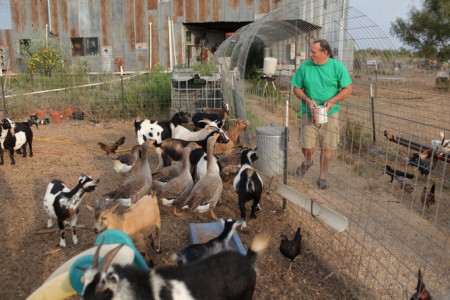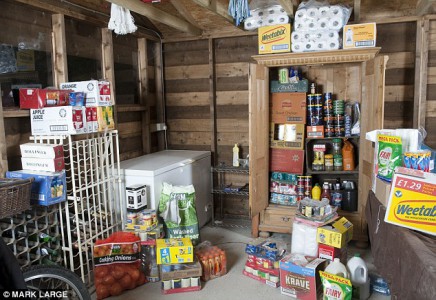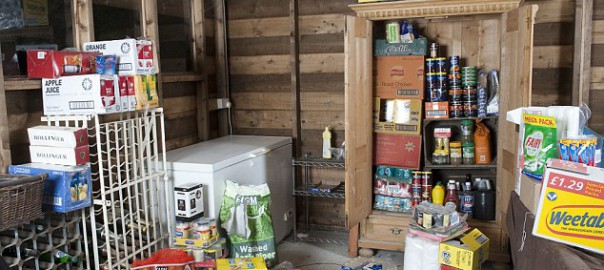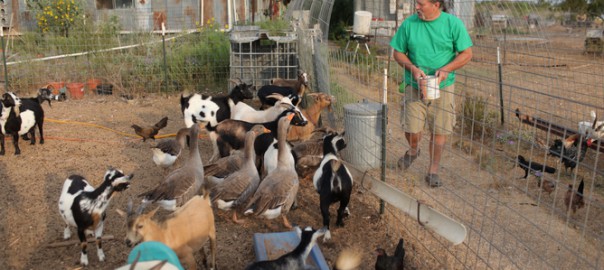This is the followup 49-100 peak oil tools as written by Sharon Astyk. To read tips #1-49 read here

49. Invite someone new to your house once every month. Try and expand your community and circle of friends regularly. Invite people to eat with you regularly – sharing food is an important part of community building.
50. Attend zoning meetings and consider running for zoning board. Work to amend local zoning laws to allow green building, composting toilets, clotheslines, small livestock, cottage businesses, front lawn gardens and other essentials.
51. Have a large house and not a lot of people in it? Consider a roommate, or borders. This will make you more economically stable and also expand your community and local resources. If you currently rent an apartment, consider sharing housing with a roommate.
52. If your community doesn’t have a food coop, start one now. There is a great deal of information on the web here: This can be a powerful tool for creating local food economies.
53. Consider creating a community currency. They keep money local and encourage small businesses and sustainable economies.
54. Sometimes you get more by giving things away than by selling them. Do you have something you don’t need? Extra produce? Spare time? Give extra tomatoes to a neighbor, offer spare items to friends, go over and help out someone who could use it. Good deeds mostly return to us.
55. Build an in-law apartment, or set your home up so that elderly family members can live comfortably with you when the time comes. Sit down and talk to them before the problem becomes acute, and tell them that you want them with you. It is easier to move elderly folks in with you before things become difficult.
56. Take time to get to know children in your neighborhood, especially teenagers. Make friends with them, talk and listen respectfully. Consider inviting them to apprentice with you on some work, or join in a work project (don’t forget to pay them for their help). Older children and teenagers need *meaningful* work – they need to know their contribution matters. Make sure it does.
57. Get to know local farmers and encourage them to fill gaps in your local food system – get together with neighbors and friends and create a market for local wheat, local dried beans, and other foods that are often grown industrially. If farmers know that even small quantities of these foods, locally grown, would be welcome, they will grow them.
58. Create a community festival to showcase local agricultural products, arts or other truly local creations and skills. Instead of focusing on simply drawing tourists, emphasize activities that bring the community together as part of it – dances, demonstrations of skill, children’s activities.
59. Draw attention to your local watershed, and on your vulnerabilities in that regard. Will you be competing with other communities? Are there areas of waste to be dealt with? Wetlands to be preserved? Make assuring a safe, long term water supply a community priority.
60. Create local educational systems – resist regionalizing schools and advocate for the creation or recreation of neighborhood school and library systems. Build homeschooling coops, and set up library branches at walkable sites. Encourage extension programs, community college branches and everything you can to make education more local.
Read more: Organic Consumers





